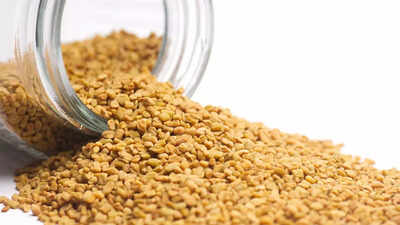9 potential side effects of fenugreek seeds and how to avoid them |

Fenugreek seeds have been prized for centuries for both their medicinal and culinary uses. Commonly incorporated into Indian, Middle Eastern, and Mediterranean dishes, they are also widely used in herbal supplements for supporting blood sugar management, enhancing lactation, and promoting general wellness. Despite their many benefits, fenugreek seeds can cause side effects in certain individuals, especially when consumed in large amounts or as concentrated extracts. Being aware of these potential effects is essential to ensure safe use. Understanding how fenugreek interacts with the body helps people, particularly those with pre-existing health conditions or on medications, use it safely and effectively.
From bloating to blood sugar changes: Fenugreek seeds side effects
1. Digestive issuesFenugreek seeds are high in fibre, which can sometimes lead to digestive discomfort. According toa study published in MDPI, some individuals may experience diarrhoea or loose stools, while others notice bloating, gas, or stomach cramps. These symptoms are usually mild and temporary, but can be exacerbated if seeds are consumed in large amounts or in concentrated supplement form.
2. Nausea and light-headednessIn certain cases, fenugreek seeds may cause nausea or feelings of light-headedness. This is more common when consuming concentrated forms such as capsules, powders, or extracts. If these symptoms occur, reducing the dose or switching to culinary use rather than supplements can help minimise discomfort.3. Hypoglycaemia (Low blood sugar)Fenugreek can lower blood sugar levels, which can be beneficial for people managing diabetes. However, excessive intake or combining it with blood sugar-lowering medications may cause hypoglycaemia. Symptoms include dizziness, sweating, fatigue, or fainting. Monitoring blood sugar regularly is recommended for those with diabetes when using fenugreek.4. Allergic reactionsAlthough rare, some individuals may be allergic to fenugreek, particularly those sensitive to legumes. Allergic reactions can include facial swelling, skin rashes, nasal congestion, or in severe cases, difficulty breathing. Anyone with a known legume allergy should approach fenugreek with caution or consult a healthcare provider before use.5. Body odour changesFenugreek may cause a noticeable sweet odour in sweat, urine, or breast milk. While harmless, this effect can be surprising and sometimes socially inconvenient. Reducing intake or using smaller culinary amounts can help minimise this effect.6. Risks during pregnancyPregnant women should avoid high doses of fenugreek, as it can stimulate uterine contractions. Culinary amounts are generally considered safe, but concentrated supplements should not be used without medical advice. Consulting a doctor before use is strongly recommended to avoid potential risks.7. Interaction with medicationsFenugreek may interact with certain medications, particularly blood thinners, increasing the risk of bleeding. Those taking anticoagulants or with bleeding disorders should consult a healthcare professional before including fenugreek in their routine. It may also affect medications for diabetes or thyroid conditions, so careful monitoring is necessary.8. Electrolyte imbalanceExcessive consumption of fenugreek can sometimes affect potassium levels in the body. Although rare, this may pose a concern for individuals with kidney issues or those on medications that influence electrolyte balance. Staying within recommended doses helps reduce this risk.9. Respiratory issuesInhaling powdered fenugreek seeds may trigger respiratory irritation in sensitive individuals, causing coughing or shortness of breath. Using whole seeds in cooking or handling powders with care can prevent this issue.
- Start small: Begin with small amounts of fenugreek seeds in meals or teas to see how your body responds.
- Moderation is key: Avoid high doses of supplements without medical supervision.
- Consult a professional: Pregnant or breastfeeding women, people with diabetes, and those on medications should speak to a doctor before use.
- Monitor symptoms: Watch for digestive issues, changes in blood sugar, or allergic reactions.
Disclaimer: This article is for informational purposes only and should not be considered medical advice. Please consult a healthcare professional before making any changes to your diet, medication, or lifestyle.Also read | Dates as a healthy sugar alternative: Nutrition, benefits, and smart ways to use them






